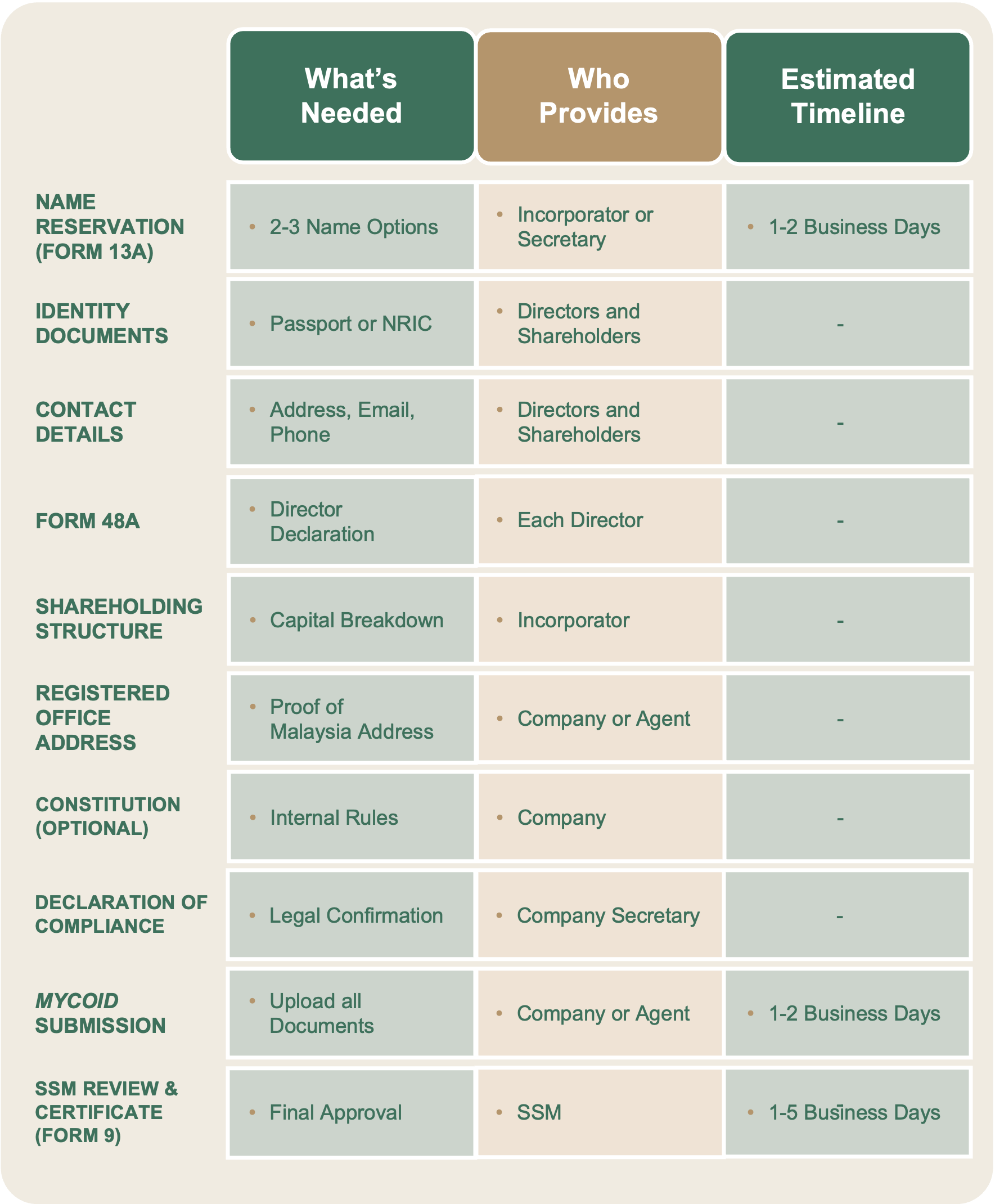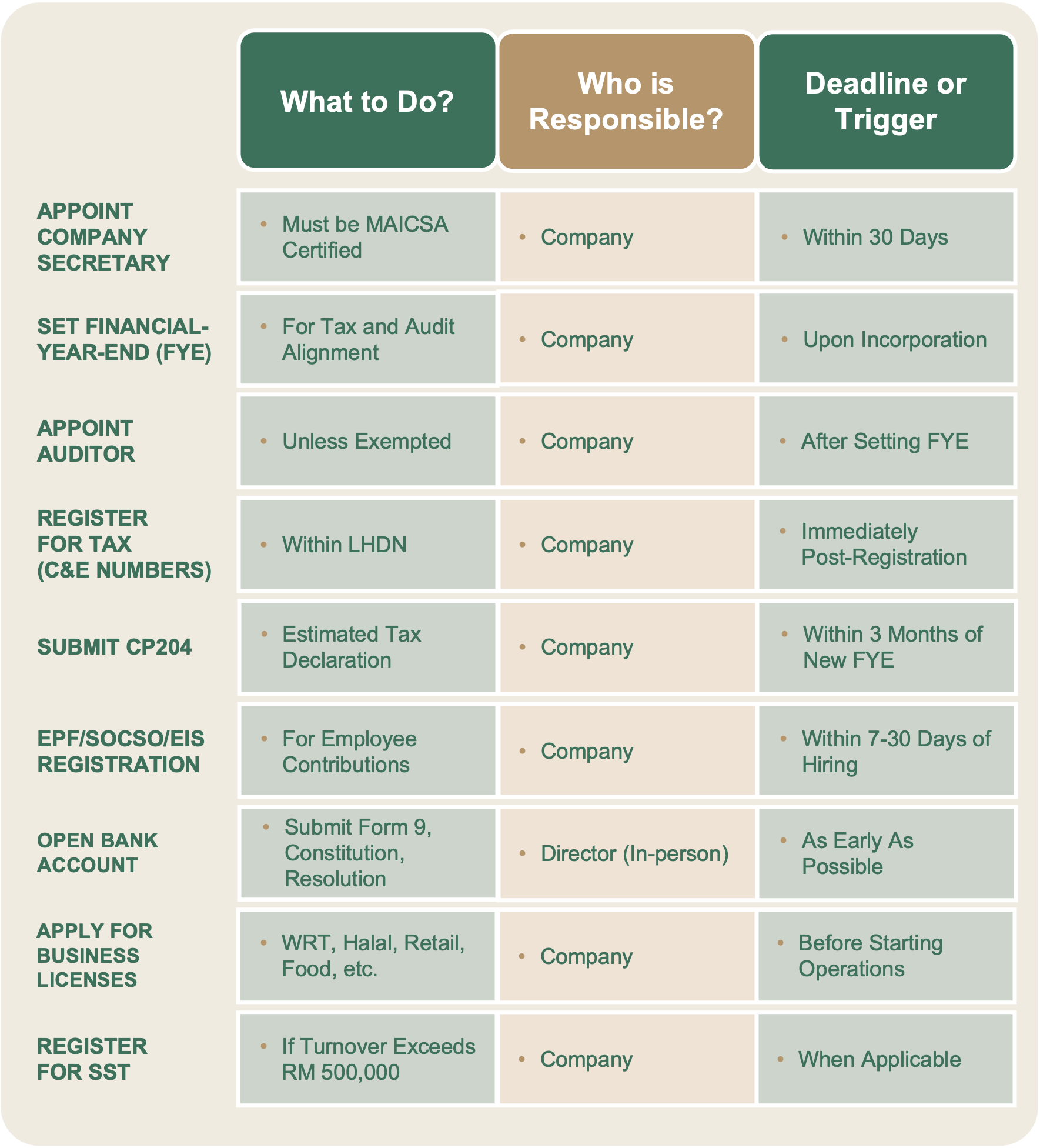
Malaysia has quickly gained traction among foreign entrepreneurs and high-net-worth individuals as a top destination for regional expansion. With its stable tax regime, high English proficiency, modern infrastructure, and strategic access to ASEAN markets, Malaysia offers a compelling mix of opportunity and accessibility.
As foreign interest grows, many ask: "Can I register a Malaysia company without physically being in Malaysia?" The answer is YES.
Who Oversees Company Registration in Malaysia?
Company registration is governed by the Companies Commission of Malaysia (SSM), also known as Suruhanjaya Syarikat Malaysia. This statutory body is responsible for overseeing incorporation, business registration, and corporate compliance across Peninsular Malaysia, Sabah, and Sarawak.
All company formation must now be submitted digitally through SSM’s MyCoID platform, made mandatory under the Companies Act 2016. Foreigners can complete the process remotely via MyCoID, as long as local compliance requirements are met, most notably appointing a licensed company secretary within 30 days of incorporation.
SSM also
- Approves and reserves company names
- Review incorporation documents
- Issues company registration certificates (Form 9)
- Monitors ongoing compliance
Which Company Structures Can Foreigners Register?
Foreign investors are eligible to register several business entity types under Malaysian law. The most relevant options include:
1. Private Limited Company (Sdn Bhd)
This is the most chosen business structure for foreign investors in Malaysia. A Sdn Bhd is a separate legal entity with limited liability for shareholders and allow 100% foreign ownership in most industries. It is suitable for consulting, E-commerce, technology, trading, and service-based businesses.
2. Labuan Company
Labuan companies are incorporated under the Labuan Financial Services Authority. They are typically used for international holding, offshore investment, or intellectual property licensing. They enjoy low tax rates (either 3% net profit or a flat RM20,000 annually) but cannot operate in the domestic Malaysian market.
3. Branch or Representative Office
A branch office is not a separate legal entity and is considered part of the foreign parent company, which assumes all liabilities. A representative office can only conduct market research or liaison activity and cannot generate income.
4. Limited Liability Partnership (LLP)
LLPs are mainly used by professional service providers.They offer flexible management and limited liability but must have at least one compliance officer based in Malaysia. They are rarely used for foreign-controlled businesses due to licensing and operational limitations.
Legal Requirements and Foreign Ownership Conditions
Most industries in Malaysia permit 100% foreign ownership, especially in sectors such as consulting, trading, technology, and e-commerce. Certain regulated sectors like banking, telecommunications, and energy may require local partners or shareholding caps.
Although the legal minimum paid-up capital is RM 1, many banks and visa-related agencies require more:
- RM 1,000 to open a bank account
- RM 500,000 to RM 1,000,000 for Employment Pass applications
Foreign-owned companies must also:
- Appoint at least one resident director (Malaysian citizen, permanent resident, or long-term visa holder staying 182+days/year)
- Appoint at least one licensed company secretary who is a Malaysian citizen or PR and MAICSA member
- Provide a valid Malaysian registered office address (physical recommended for bank and visa use)
- Allow shareholders to be individuals or legal entities, with no nationality restrictions
Required Documents and Registration Timeline
To simplify the process, here is a combined view of what is needed and how long each step takes:

What Happens After Registration?
Once your Sdn Bhd is officially incorporated, here is a checklist of mandatory post-registration steps:

Need Help Setting Up a Malaysian Company?
At Lotusia Group, we help foreign business owners incorporate and run fully compliant Malaysian companies, from documentation and licensing to secretarial support and post-incorporation compliance.

.png)






